Your employees deserve the best, and that starts with access to the latest knowledge.
Research shows that cancer outcomes are dramatically better at National Cancer Institute (NCI)-Designated Comprehensive Cancer Centers. But only 20% of cases are treated there.1,2 That’s why AccessHope connects your plan and your employees' community oncologists with NCI subspecialists, which can allow your employees to benefit from leading research, from the comfort of home.
We proudly partner with NCI centers to remotely deliver expertise to help employees and their families nationwide
Dana-Farber Cancer Institute
Emory Healthcare
Fred Hutch Cancer Center
Johns Hopkins Medicine
Northwestern Medicine
UT Southwestern Medical Center
Where breakthroughs begin.
City of Hope
City of Hope is a world renowned cancer research and treatment center based in southern California. It is a National Cancer Institute-designated comprehensive cancer center, in addition to being a founding member of the National Comprehensive Cancer Network, making it a national leader in advancing research and treatment protocols. For over a decade, City of Hope has been identified as one of the nation’s elite cancer hospitals by U.S. News & World Report.
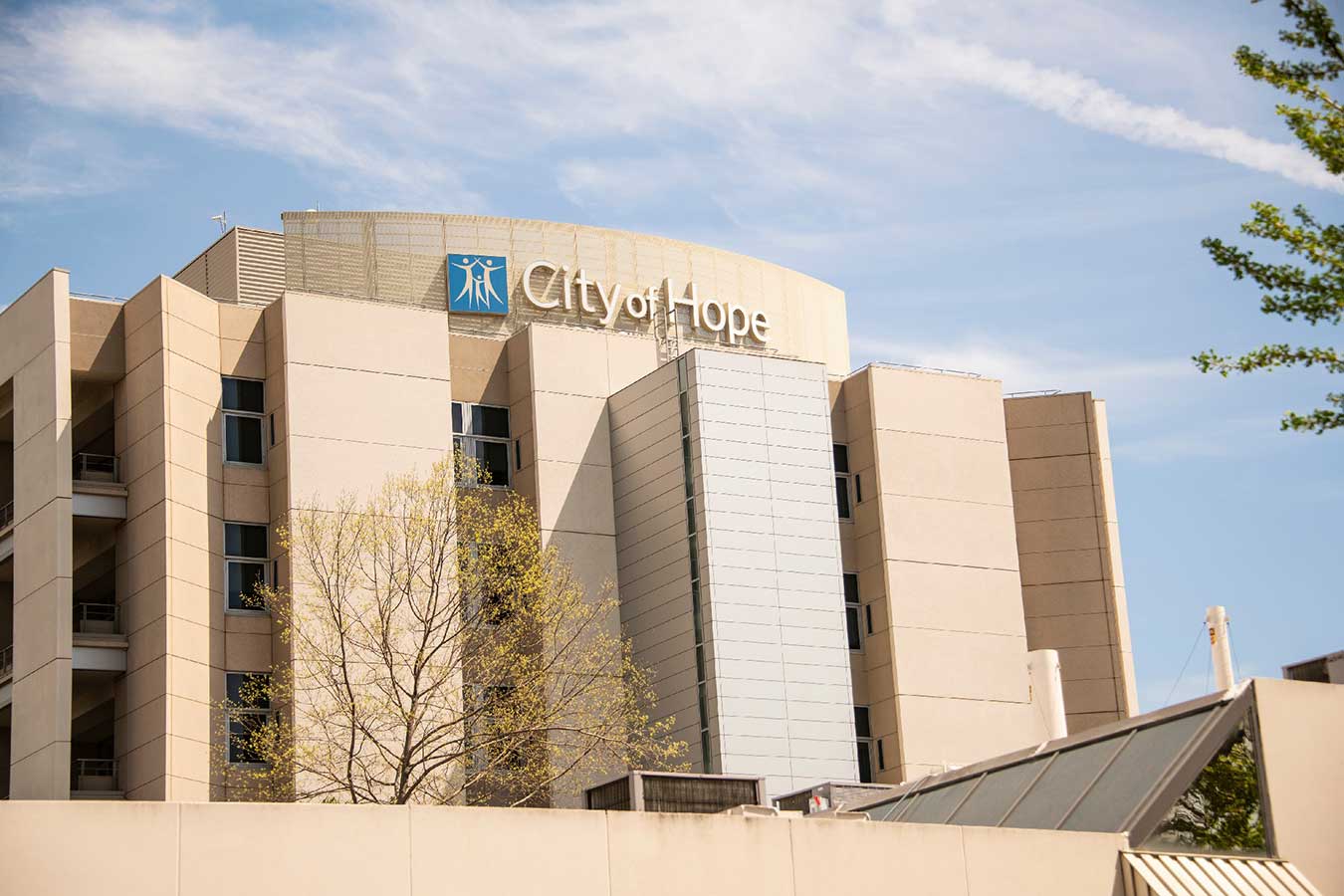

Dana-Farber Cancer Institute
Dana-Farber Cancer Institute in Boston, MA is a Harvard Medical School teaching hospital. It is the #1 ranked cancer hospital in New England by US News & World Report. Nationwide, it is the only cancer hospital to be ranked in the top 5 for both adult and pediatric oncology care. Dana-Farber is dedicated to a unique balance of cancer care and research, translating discovery into new therapies for patients around the world and offering more than 1,100 clinical trials.
Dana-Farber is a founding member of the Dana-Farber/Harvard Cancer Center (DF/HCC), an NCI-designated Comprehensive Cancer Center, a founding member of the National Comprehensive Cancer Network, the top academic recipient of grant funding from the National Cancer Institute (NCI), and has the most highly cited research of any U.S. cancer center.
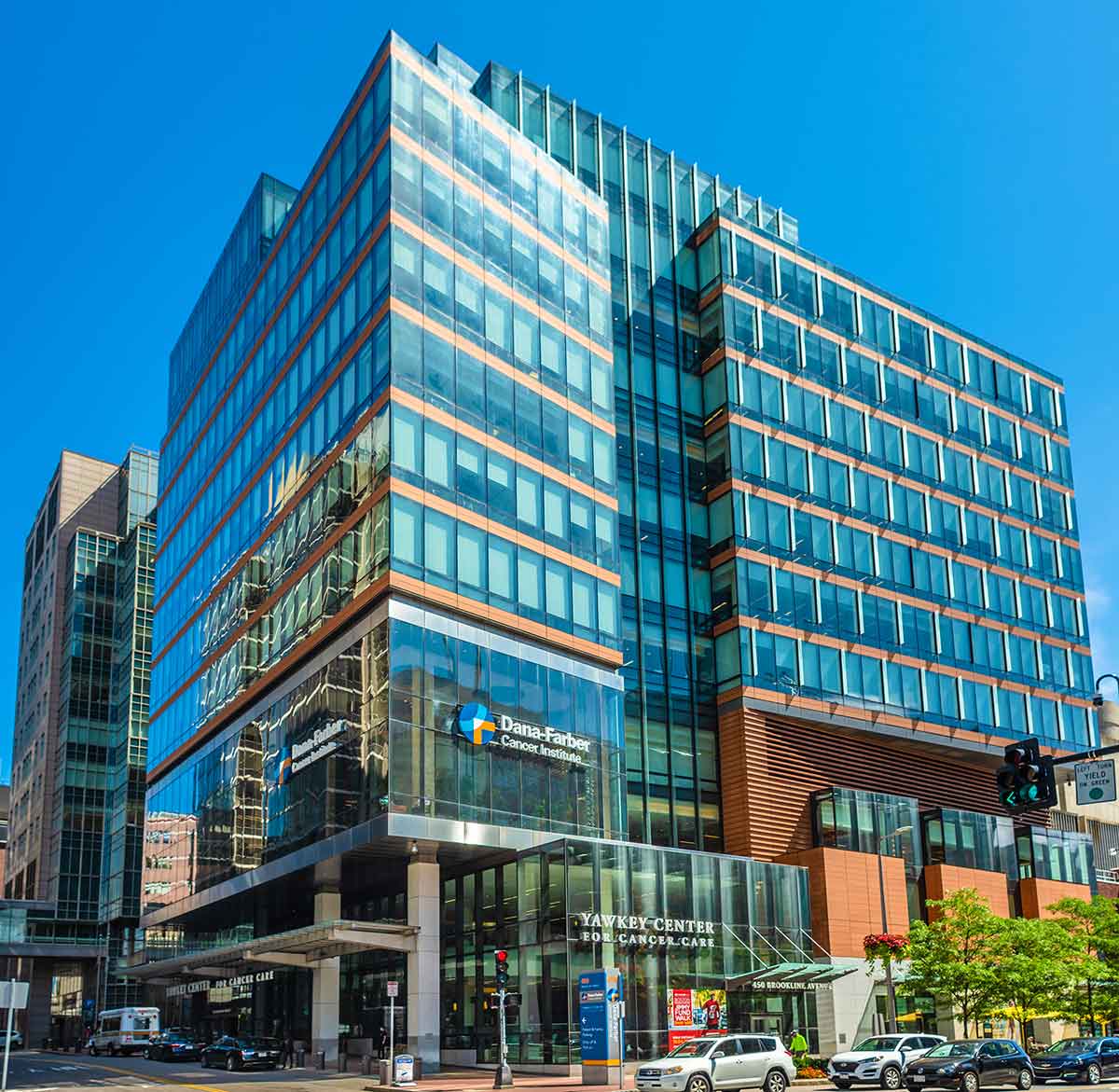
Emory Healthcare
Emory Healthcare, with more than 24,000 employees and 11 hospitals, is the most comprehensive academic health system in Georgia. System-wide, it has 2,796 licensed patient beds, more than 2,800 physicians practicing in more than 70 specialties, serving metro Atlanta with 250 locations. It also provides services to greater Georgia through a joint venture at St. Francis–Emory Healthcare Hospital in Columbus, 10 regional affiliate hospitals, and its clinically integrated physician network.
As the National Cancer Institute (NCI)-designated comprehensive cancer center for the state of Georgia, Winship Cancer Institute of Emory University discovers, develops and delivers some of the world's most effective ways to prevent, detect, diagnose and treat each patient's unique cancer. Winship leverages the depth and breadth of Emory University and collaborates with other NCI-designated cancer centers and leading cancer organizations. Winship investigators conducted more than 300 therapeutic clinical trials and enrolled more than 900 patients in 2020. Winship has more than 500 faculty and received $80 million in cancer research funding in 2020, $33 million of that from the NCI.
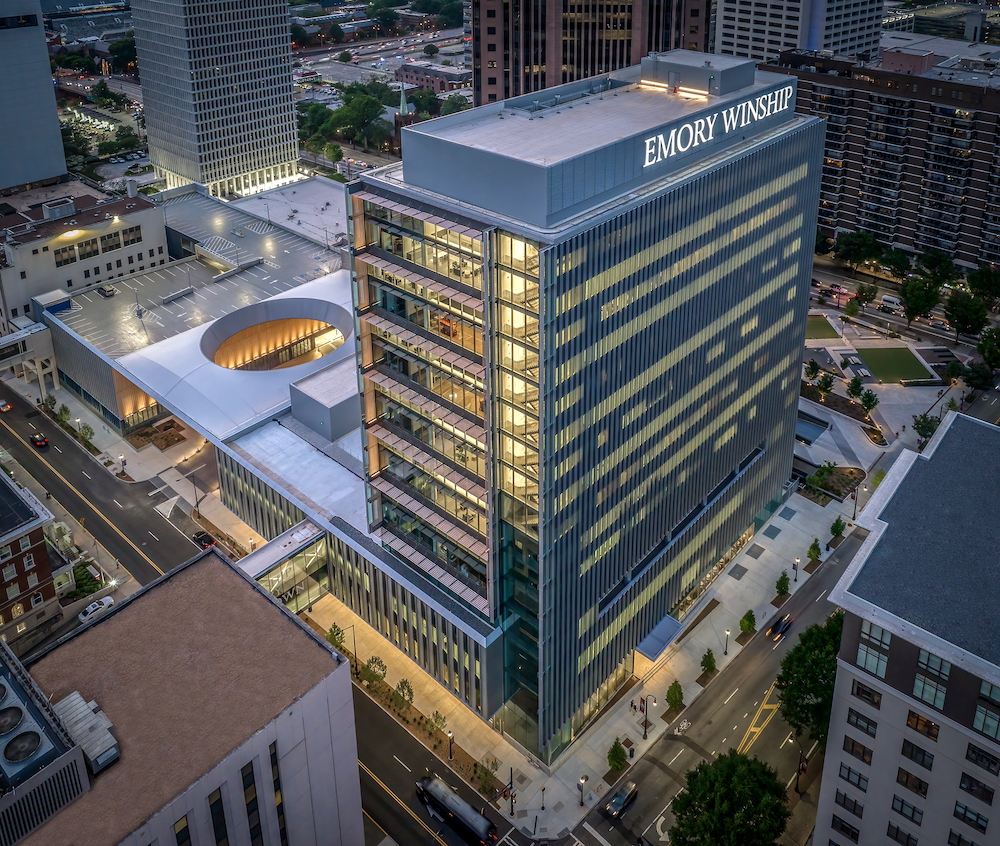

Northwestern Medicine
Northwestern Medicine is a nationally recognized health system that provides world-class care. Anchored by Northwestern Memorial Hospital, ranked No. 1 in Illinois and No. 9 in the nation by US News and World Report. Northwestern Medicine encompasses more than 200 locations including 10 hospitals, the Northwestern University Feinberg School of Medicine and The Robert H. Lurie Comprehensive Cancer Center.
Backed by the Lurie Cancer Center, Northwestern Memorial Hospital is ranked #9 in the nation by US News and World Report and is part of a select group of National Cancer Institute (NCI) designated Comprehensive Cancer Centers. Dedicated to overcoming cancer through scientific discovery, the Lurie Cancer Center provides compassionate, leading edge cancer care in a state of the art facility.


Fred Hutch Cancer Center
Fred Hutch Cancer Center combines adult cancer care and advanced scientific research, and has a history of discoveries that treat, cure and identify prevention strategies for cancer and infectious diseases. The organization was renamed in April 2022, following the merger of long-time partners, Fred Hutch Cancer Research Center and Seattle Cancer Care Alliance. Fred Hutch Cancer Center is an independent, nonprofit organization that serves as UW Medicine’s cancer program.
Fred Hutch has been a National Cancer Institute-designated cancer center since 1973. Global leadership in bone marrow transplantation, HIV/AIDS, immunotherapy and COVID-19 helped Fred Hutch earn recognition as one of the world’s leading cancer, infectious disease and biomedical research centers. Based in Seattle, Fred Hutch operates eight clinical care sites that provide medical oncology, infusion, radiation, proton therapy and related services, and has network affiliations with hospitals in five states.
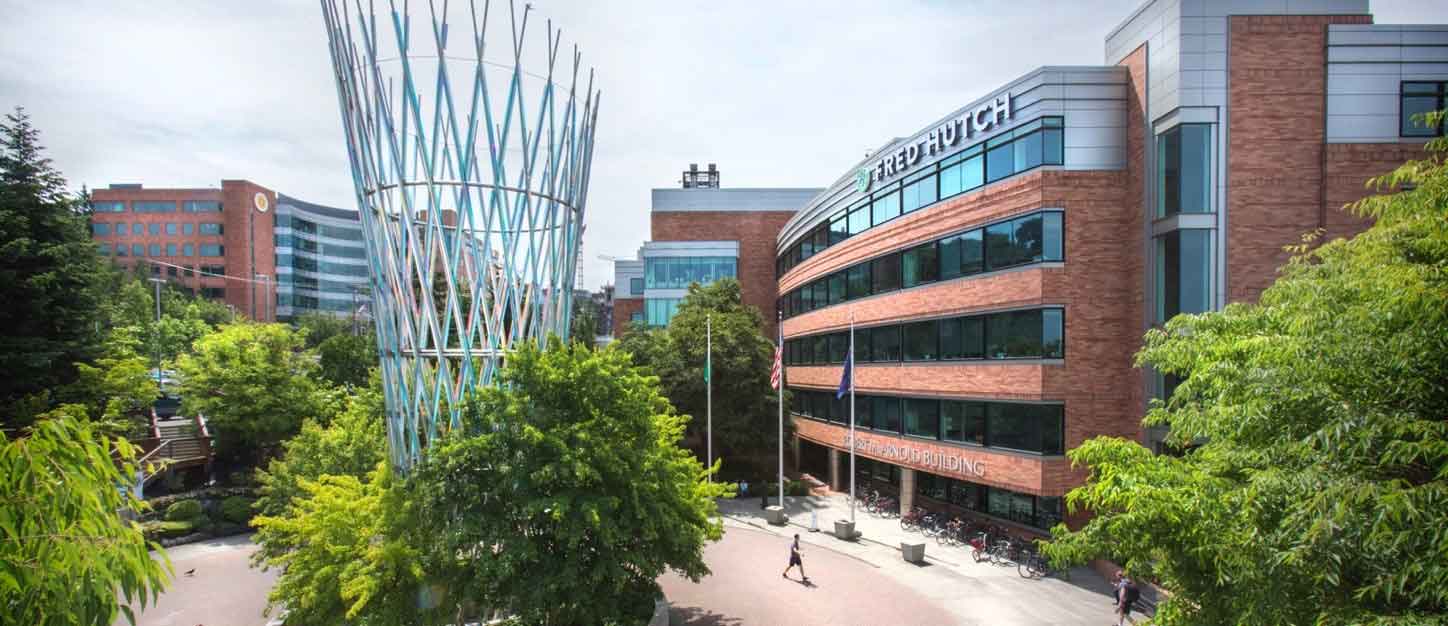

Kimmel Cancer Center
As part of the Johns Hopkins Medicine academic health system and Johns Hopkins University School of Medicine, the Kimmel Cancer Center has five locations in the Baltimore and Greater Washington, D.C., regions. Designated by the National Cancer Institute as one of the first comprehensive cancer centers in the country, its physicians and scientists are recognized leaders throughout the nation and the world.
The Kimmel Cancer Center understands that each patient is unique and it provides a tailored approach to care by multidisciplinary teams of specialists. Its patients have access to a large number of clinical trials and supportive care resources for themselves and their caregivers. From immunotherapy and proton therapy, to molecular tumor board-guided treatments, its physicians, nurses, and pharmacists are dedicated to providing the best care possible backed by innovative research.
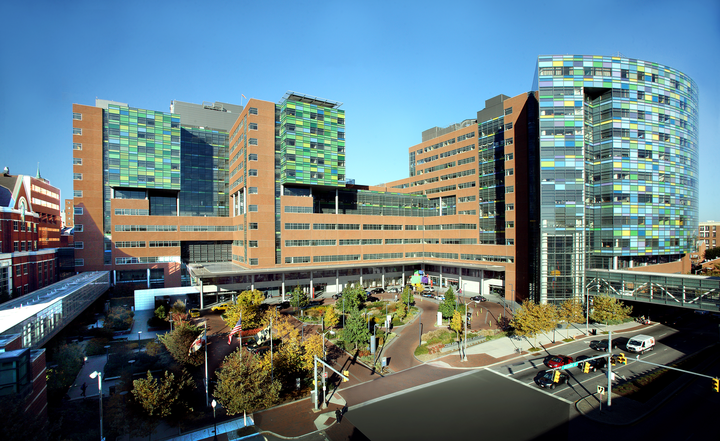

Harold C. Simmons Comprehensive Cancer Center
Harold C. Simmons Comprehensive Cancer Center is the National Cancer Institute-designated Comprehensive Cancer Center of UT Southwestern Medical Center in Dallas, Texas. With 15 multidisciplinary teams interconnected to bring broad expertise to bear on challenges unique to different cancers, our providers facilitate access to compassionate, quality, leading-edge care including the latest in clinical trials. Simmons Cancer Center is a member of the National Comprehensive Cancer Network and ranked among the top 20 cancer centers in the nation by U.S. News & World Report.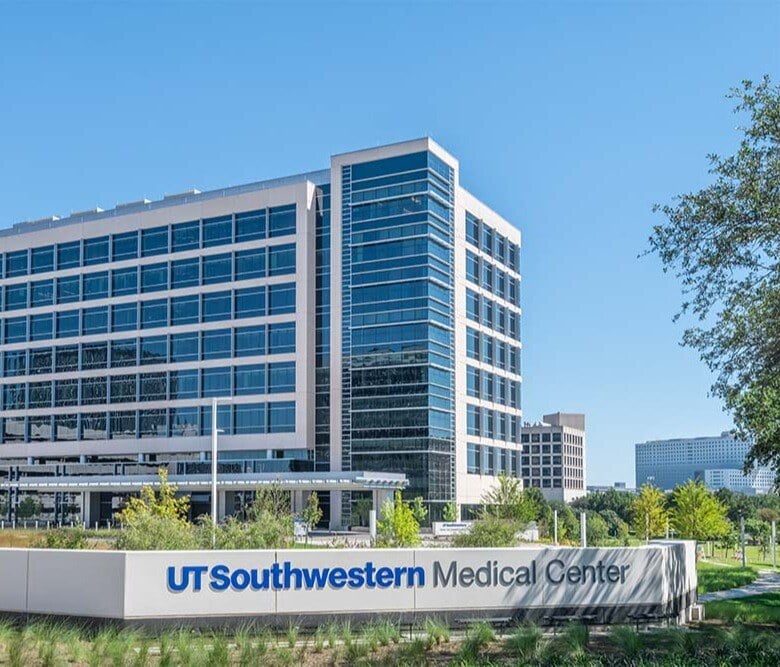
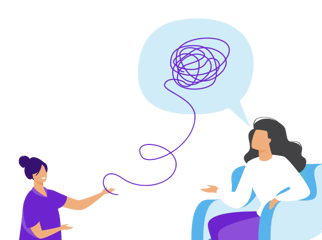
Cancer is complicated
There are hundreds of cancer types and variants, and optimal treatments can be radically different depending on factors like genetics and stage. AccessHope supports your plan, your employee, and their oncologist with expertise related to their specific case, to make a real, measurable, tangible difference.

Cancer is costly
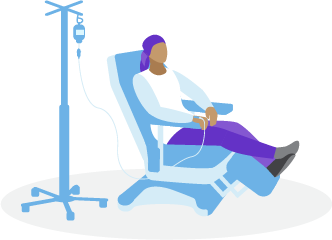
Cancer doesn't treat all people equally
A troubling gap exists between cancer treatment and cancer outcomes based on race, ethnicity, socioeconomic status, sexual orientation, and other characteristics.4 AccessHope can help narrow those gaps with support for your employees, no matter what their zip code or job level is.
How we make a difference
Humanistic outcomes are at the heart of what we do.
With AccessHope, your employees:
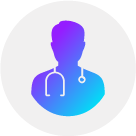
Get support early on
Employees’ community oncologists can gain access to the knowledge of more than 330 specialists to gain insights they can use to achieve the best-possible outcomes.
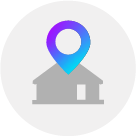
Stay close to home
By remotely connecting their community oncologist with leading cancer expertise, AccessHope enables employees to stay at home, under the continuous care of their oncologist and local support system.

Avoid unnecessary costs
By providing recommendations to help ensure the employee is on the right path as early as possible, unnecessary treatments–and the spending that goes along with them–can be eliminated.
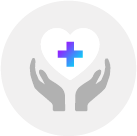
Access compassionate nurses
Employees and their families can speak with trained, compassionate nurses to discuss everything from early detection and side effects of treatment to information on clinical trials, from the comfort of home.
Our AccessHope Client Excellence director is genuinely interested in our priorities and offers insights that are strategic in nature. I truly appreciate her ability to operate at different altitudes effectively. She is personable in her approach which further helps build our relationship. She gets it and is one of the best account managers I’ve worked with in my 15 years in Benefits.
The AccessHope team is a true partner: They care about what we care about and always try to help us resolve even some of the most challenging asks. Most importantly, they listen and make us feel valued as a client. We are always reaching higher and for more, and they are along for the ride. Together, we are making a difference.
The proof is in the
(peer-reviewed) paper
Our subspecialists provided evidence-based recommendations that had the potential to influence the treatment plan in approximately 93% of cases.5
How are you different than other cancer support services?
AccessHope’s employer benefit gives employer self-funded plans and the treating physicians of employees remote access to renowned cancer expertise through foundational partnerships with NCI–Designated Comprehensive Cancer Centers, allowing a 100% focus on cancer.
We bring advanced expert knowledge to advise on clinical aspects of a proposed treatment plan and provide evidence-based recommendations including personalized precision medicine opportunities, as well as appropriate clinical trial information and support services, regardless of an employee’s location.
How is AccessHope different than Centers of Excellence (COE) services?
COE services provide medical care to cancer patients; AccessHope does not. AccessHope’s business model remotely connects (a) employees to cancer support services from expert oncology nurses and support staff via our Cancer Support Team; (b) employees’ community oncologists (via our Expert Advisory Review service) and benefit plans (via our Accountable Precision Oncology service) to the latest expertise from NCI–Designated Comprehensive Cancer Centers, eliminating the need to travel for leading cancer expertise and leaving their care decisions 100% in the hands of their local treating physician. Our program supports all cancer types and stages along the member’s journey, while they stay close to home with their local support system.
How are you different than second opinion or expert medical opinion (EMO) services?
Unlike EMO solutions that provide written case reports to members, AccessHope specialists deliver a detailed report on each unique cancer case to the member’s plan or their community oncologist and follow up with an offer of a peer-to-peer clinical consultation call to discuss the evidenced-based recommendations. AccessHope is focused solely on supporting cancer cases with the latest knowledge from NCI centers to help improve quality of life and health outcomes for more people with cancer.
How does AccessHope work in practice? What exactly do you do?
AccessHope offers remote cancer support services to employers nationwide – Accountable Precision Oncology, Expert Advisory Review and Cancer Support Team.
AccessHope connects employees to expertise from NCI–Designated Comprehensive Cancer Centers—to provide unparalleled decision support to cancer patients’ treating physicians and health plans throughout the cancer journey.
Learn more about our suite of services.
Are community oncologists willing to collaborate with your subspecialists?
Yes. AccessHope experts offer recommendations for improvement in 93% of cancer cases in which we are asked to contribute. In 2 out of 3 cases, at least one recommendation to change treatment was implemented.
In fact, our innovative model of remote expert case reviews was recently validated by a peer-reviewed study in the medical journal JCO Oncology Practice.
How do you provide expertise to employees with cancer? Do they need to travel?
AccessHope services do not require members to travel, but instead provide remote access to leading-edge insights.
How difficult would it be for me to implement AccessHope at my organization?
To implement our member-initiated Expert Advisory Review and Cancer Support Team services, AccessHope requires an eligibility file sent weekly from your organization. Our Implementation team will work with you to develop cohesive workflows to streamline this process.
How do you handle member privacy?
AccessHope values members’ privacy. All employee information is transmitted, used and stored securely, according to applicable HIPAA guidelines.
How is AccessHope addressing cancer health disparities?
AccessHope’s remote expert reviews addresses disparities by providing access to NCI-Designated CCC expertise regardless of the employee’s geographic location. Highly specialized hospitals like NCI-Designated CCCs have been shown in a study to have higher survival rates over 5 years versus community hospitals.1
A recent population-based, retrospective study of 5,137 cases found that the most socioeconomically disadvantaged patients were more likely to have recommended changes in cancer treatment. The research highlights the impact of AccessHope's remote consultations on addressing healthcare disparities.
Reference
1 Pfister DG, Rubin DM, Elkin EB, et al. Risk adjusting survival outcomes in hospitals that treat patients with cancer without information on cancer stage. JAMA Oncol. 2015;1(9)1303-1310.
Featured Articles
Cancer Health Disparities - The Harsh Truth ...
A troubling gap exists between cancer treatment and cancer outcomes based on race, ethnicity, socioeconomic status, sexual orientation, and other characteristics.
Read moreReferences:
1 National Cancer Institute. Data table 3: Reportable patients/participation in therapeutic studies. National Institute of Health Web site. https://cancercenters.cancer.gov/DT/DT3. Accessed June 4, 2021.
2 American Cancer Society. https://www.cancer.org/content/dam/cancer-org/research/cancer-facts-and-statistics/annual-cancer-facts-and-figures/2020/cancer-facts-and-figures-2020.pdf. Accessed September 8, 2022.
3 Business Group on Health. 2023 Large Employers’ Health Care Strategy and Plan Design Survey. August 2022. Available at: https://www.businessgrouphealth.org/ resources/2023-large-employers-health-care-strategy-survey-intro
4 American Association for Cancer Research. AACR Cancer Disparities Progress Report 2020. https://cancerprogressreport.aacr.org/wp-content/uploads/sites/2/2020/09/AACR_CDPR_2020.pdf. Published 2020. Accessed October 6, 2020.
5 West HJ, Tan YA, Barzi A, Wong D, Parsley R, Sachs T. Novel program offering remote, asynchronous subspecialist input in thoracic oncology: Early experience and insights gained during the COVID-19 pandemic [published online ahead of print December 3, 2021]. JCO Oncology Practice. doi:10.1200/OP.21.00339